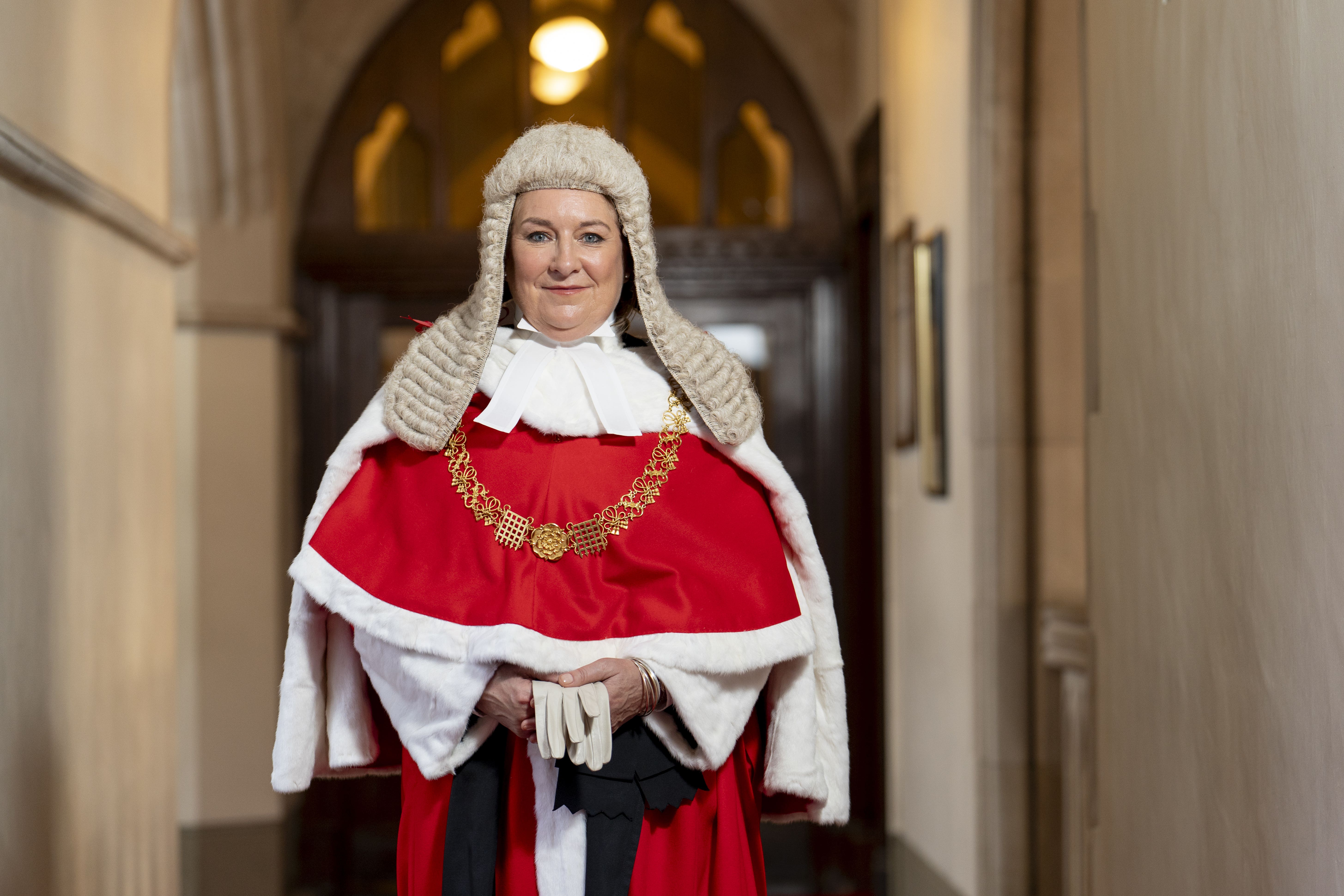Sometimes, life presents situations so difficult, so profoundly challenging, that a person might feel compelled to confront the very core of what happened. This feeling, this need to dig deep and understand, is a kind of engagement, a way of facing the true nature of things. It's about looking at the hidden layers, the very essence, of a situation or a feeling.
We often see this intense need to grasp the heart of a matter when someone has gone through something truly awful. It is, you know, a very human response to pain and confusion. The path to finding some sense, or perhaps even a little bit of peace, often involves this kind of determined search for what lies beneath the surface.
Consider the story of Sue Klebold, for instance. For many years, she lived a life away from public view, trying, you see, to make sense of something almost impossible to grasp. Her journey, in a way, shows us what it means to truly engage with the deepest parts of a painful truth.
Table of Contents
- Sue Klebold - A Life of Reflection
- What Does It Mean to Sue the Substance of Sorrow?
- How Do We Sue the Substance of Everyday Information?
- Can We Sue the Substance of Personal Stories?
- Why Is It Important to Sue the Substance of What We Face?
Sue Klebold - A Life of Reflection
Sue Klebold is known as the mother of one of the young men involved in the Columbine High School shooting. Her story is one of deep, personal struggle. She spent a very long time living away from the public eye, wrestling with a huge question: how could her son have done such a thing? This kind of quiet, determined effort to understand is, in a way, a form of seeking out the very core of a matter.
Seventeen years after that terrible day, Sue Klebold decided to share her experiences and her search for answers. Her decision to speak publicly, to tell her side of a very difficult story, shows a tremendous amount of personal strength. It’s a way of confronting the true nature of her grief and her son's actions, and perhaps helping others who find themselves in similar situations, or so it seems.
Personal Details
| Detail Category | Information |
|---|---|
| Relationship | Mother of a Columbine perpetrator |
| Post-Event Status | Lived withdrawn for a long period |
| Public Engagement | Spoke out 17 years after the event |
| Personal Quest | Sought to understand her son's actions |
What Does It Mean to Sue the Substance of Sorrow?
When we talk about "suing the substance" of sorrow, it's not about going to court. It's more about a deep, personal challenge. It means looking at the very heart of what causes pain, trying to figure out why things happen the way they do. For someone like Sue Klebold, this means facing the most difficult questions about her own family, about what might have led to such a tragedy. It is, really, a very heavy burden to carry.
This process of confronting the deepest parts of a painful event can feel like a long, hard journey. It often involves a lot of quiet thinking, a lot of trying to put pieces together that do not seem to fit. It is about not just accepting what happened, but trying to grasp the actual forces at play, the very elements that made it all unfold.
Sue the Substance - A Mother's Long Search
Sue Klebold’s experience provides a powerful example of this kind of searching. She spent years living a quiet life, truly trying to come to terms with the reality of her son's actions. This was a long, slow process of looking at the very core of what occurred, of trying to piece together a picture that made some kind of sense. It was, in some respects, her way of confronting the underlying reasons, the very "substance" of the tragedy that touched her life so deeply.
Her efforts to understand, to find answers, were not about placing blame in a simple way. Instead, they were about a mother's profound need to grasp the truth of a very difficult situation. She wanted to know how her child could have become capable of something so terrible. This quiet, persistent effort to understand the core reasons, you know, is a very strong example of how someone might try to "sue the substance" of their own personal heartbreak.
How Do We Sue the Substance of Everyday Information?
The idea of "suing the substance" isn't just for big, personal tragedies. We do it in smaller ways every day, even when we read the news or work on puzzles. When you read news from Germany and all over the world, with comments and background reports, you are not just taking in facts. You are, in a way, trying to get to the true nature of what is being presented. You want to see the deeper meaning, the underlying story, the very essence of the events being described.
Similarly, when you solve exciting crossword puzzles every day, or play free online puzzles on sites like sueddeutsche.de, you are doing more than just filling in blanks. You are engaging with the structure of language, with the way words fit together, and with the hidden clues. This kind of mental effort is a way of "suing the substance" of the puzzle itself, trying to uncover its true design and solve its hidden challenges. It’s a very common human activity, really.
Sue the Substance - Puzzles and Daily News
Thinking about news reports, we often look past the headlines. We want to know the "why" and the "how," the deeper reasons behind the events. We seek out the background, the commentary, the various points of view. This search for a more complete picture, for the true essence of the story, is a way of engaging with the very "substance" of the information itself. It is, you see, a way of making sure we grasp the full story, not just a surface-level account.
With puzzles, too, the fun comes from digging into the core rules and connections. It’s not just about guessing. It’s about figuring out the pattern, the logic, the very nature of the challenge. This active process of working through the clues, of trying to understand the underlying system, is a great example of how we "sue the substance" of a seemingly simple game. It’s about getting to the heart of how it works, more or less.
Can We Sue the Substance of Personal Stories?
Personal stories, like a tribute to a female drinker, or even books about pandas, also have their own "substance." When we read such stories, we are often looking for more than just the plot. We want to connect with the feelings, the experiences, the deeper messages the writer is trying to share. This act of seeking a deeper connection, of trying to understand the true spirit of a narrative, is another way we might "sue the substance" of human experience.
The text mentions a book, "Chas and Lisa Sue meet the pandas," which is also appearing in German. Even a story that seems lighthearted on the surface can have its own kind of "substance." It might explore themes of friendship, discovery, or cultural exchange. To "sue the substance" of such a book would mean looking beyond the simple plot to find those deeper meanings and connections, you know, the things that make the story truly resonate.
Sue the Substance - Tributes and Other Narratives
A tribute, for instance, is not just a collection of facts about a person. It is an attempt to capture their spirit, their journey, the true essence of who they were. When someone reads a tribute, they are often trying to feel what the person felt, to understand their struggles and triumphs. This deep engagement with another person's life story, trying to grasp the very core of their being, is a clear example of "suing the substance" of a personal narrative.
Even the mention of Fran Lebowitz having a single appearance in Germany in April points to the "substance" of a public figure's presence. People attend such events to hear her thoughts, her unique way of seeing the world, her particular brand of humor and insight. They want to experience the true nature of her public persona, the very essence of what she offers. This desire to connect with the core of a person's artistry or thought is, you could say, a way of "suing the substance" of their public offering.
Why Is It Important to Sue the Substance of What We Face?
The idea of "suing the substance" is important because it pushes us to look beyond the immediate. It encourages us to ask deeper questions, to seek out the underlying reasons, and to truly understand the core of things. This kind of deep engagement can be uncomfortable, even painful, but it often leads to a more complete picture, and perhaps, a path to moving forward. It’s about not just reacting, but truly comprehending, which is that, a very important part of living.
Consider the advice given to Sue by her father during a long trip, when she tried to talk about school: "Have patience, Sue, we have to deal with other things first." This advice, repeated later in the text, suggests that sometimes, the true "substance" of a matter isn't immediately clear. It might require time, a waiting period, and a focus on other pressing matters before the deeper truths can be addressed. It's about recognizing that some "substances" need a slower, more thoughtful approach.
Sue the Substance - Patience and Deeper Matters
The need for patience when trying to "sue the substance" of life's bigger questions is a very real one. Just as Sue was told to wait, to handle other things first, sometimes we need to allow time for clarity to emerge. The true nature of a problem, its core "substance," might not reveal itself all at once. It might require a gradual uncovering, a slow process of putting pieces into place. This is, in a way, how we gather the strength and perspective needed to truly confront difficult truths.
Whether it's the intense personal struggle of Sue Klebold, the daily engagement with news and puzzles, or the deeper meaning in stories and public appearances, the act of "suing the substance" is about seeking out the true heart of things. It’s about moving beyond the surface, asking what lies beneath, and trying to understand the very essence of what we encounter. This deep engagement, this persistent search for core truths, is a fundamental part of the human experience, and it is, you know, a pretty powerful way to live.



